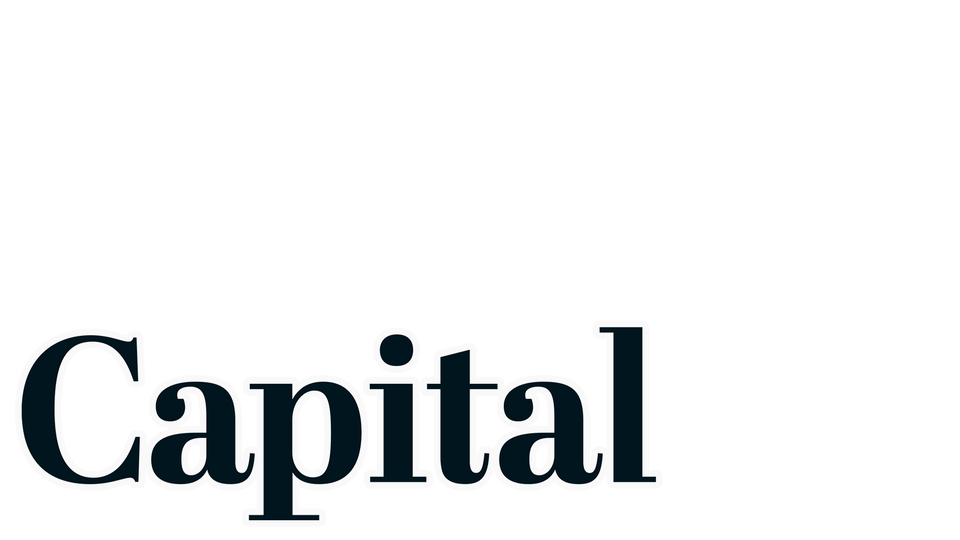The heavily indebted tour operator FTI has filed for bankruptcy. Anyone who has booked a package holiday is at least protected – other travelers are not.

This is original content from the Capital brand. This article will be available for ten days on stern.de. After that, you will find it exclusively on capital.de. Capital, like the star to RTL Germany.
The third largest German tour operator FTI from Munich has filed for bankruptcy. The financial situation has been tense for years, and around a month ago the company had actually found an investor in the US company Certares. But the planned entry at the end of the summer comes too late.
As FTI announced on Monday, insolvency has been filed for FTI Touristik GmbH. This includes the FTI brands in Germany, Austria and the Netherlands, “5vorFlug”, BigXtra GmbH and the rental vehicle brands “DriveFTI” and “Cars and Camper”. Other group companies are expected to follow in the coming days.
Since the deal with Certares, “the booking figures have fallen well short of expectations despite the positive news,” the company said. In addition, numerous suppliers insisted on advance payment, which led to an increased need for liquidity. This could now “no longer be bridged until the closing of the investor process,” it continued.
Consumers partially protected
For consumers who booked their summer vacation through FTI, the trip may be canceled for the time being. However, anyone who has booked a package holiday is covered by the German Travel Insurance Fund (DRSF). This also applies, for example, to deposits that have already been paid or to the return journey if guests are already in the destination area. “When booking, consumers receive a so-called security certificate, which is usually hidden at the very back of the documents,” explains Karolina Wojtal from the European Consumer Center Deutschland Capital. Those affected can now derive their rights from this. “Unfortunately, that doesn’t mean that it is quick and uncomplicated; there is a bit of paperwork to do. But there is this safety net.”
Anyone who has made payments to FTI and wants their money back must therefore contact the DRSF. In previous bankruptcies, online forms were set up there within a few days. “Consumers may now have to be asked to be patient for a day or two,” says Wojtal, “because recovery is probably a priority.”
Regarding trips that have already begun, FTI said they are working “at full speed” to ensure that these can be completed as planned. However, trips that have not yet begun will probably no longer be able to take place or will only be able to take place in part as of Tuesday, June 4, 2024.
Anyone who has only booked a single service, such as a hotel, through FTI is not covered by the statutory insurance protection for package tours. FTI writes that it is currently checking whether customers can still use the booked services. However, it may be problematic that FTI also apparently has outstanding debts with many hoteliers and travel companies in the destination areas.
Anyone who booked their trip through FTI as an agent, but the service comes from other tour operators such as Tui or DER Touristik, is not affected.
According to the BMF, only “small returns” from outstanding claims are to be expected
The federal government recently rejected further financial aid for RTI, as Stephan Haufe from the Federal Ministry of Economics (BMWK) and Nadine Kalwey from the Federal Ministry of Finance (BMF) confirmed on Monday. They did not comment on the exact amount, but the “Handelsblatt” reported a double-digit million amount. “There are budgetary, legal and economic reasons why no further aid has been provided here beyond the many large aid measures,” said Haufe.
During the coronavirus pandemic, the government had already helped FTI with around 600 million euros from the Economic Stabilization Fund (WSF), of which the organizer has so far only repaid a fraction. In total, FTI is said to have debts of 1 billion euros.
Both Haufe and Kalwey regretted the organizer’s insolvency and emphasized that the federal government had supported the process constructively – also in the interest of taxpayers. The individual consequences of the insolvency for the federal government must now be examined, but only small returns from the outstanding claims are likely to be expected, said Kalwey of the BMF.
Insolvency at FTI was foreseeable
Until recently, FTI had tried to present the company’s situation in a positive light and repeatedly stressed that media reports were “based on ‘old’ figures” and that sales would increase. However, the fact that there was a high risk of default months ago is shown by the fact that FTI had to deposit the maximum security deposit of nine percent with the German Travel Insurance Fund (DRSF) in February. The organizer confirmed this to Capital at the time.
In addition, FTI was only able to report 2.4 percent of equity in autumn 2022, which is an indication of the risk of default of a company – at FTI it was apparently already high. As the last financial statements suggested, it seemed to be mainly high loans that saved the company from bankruptcy.
The text has been updated.
Source: Stern




